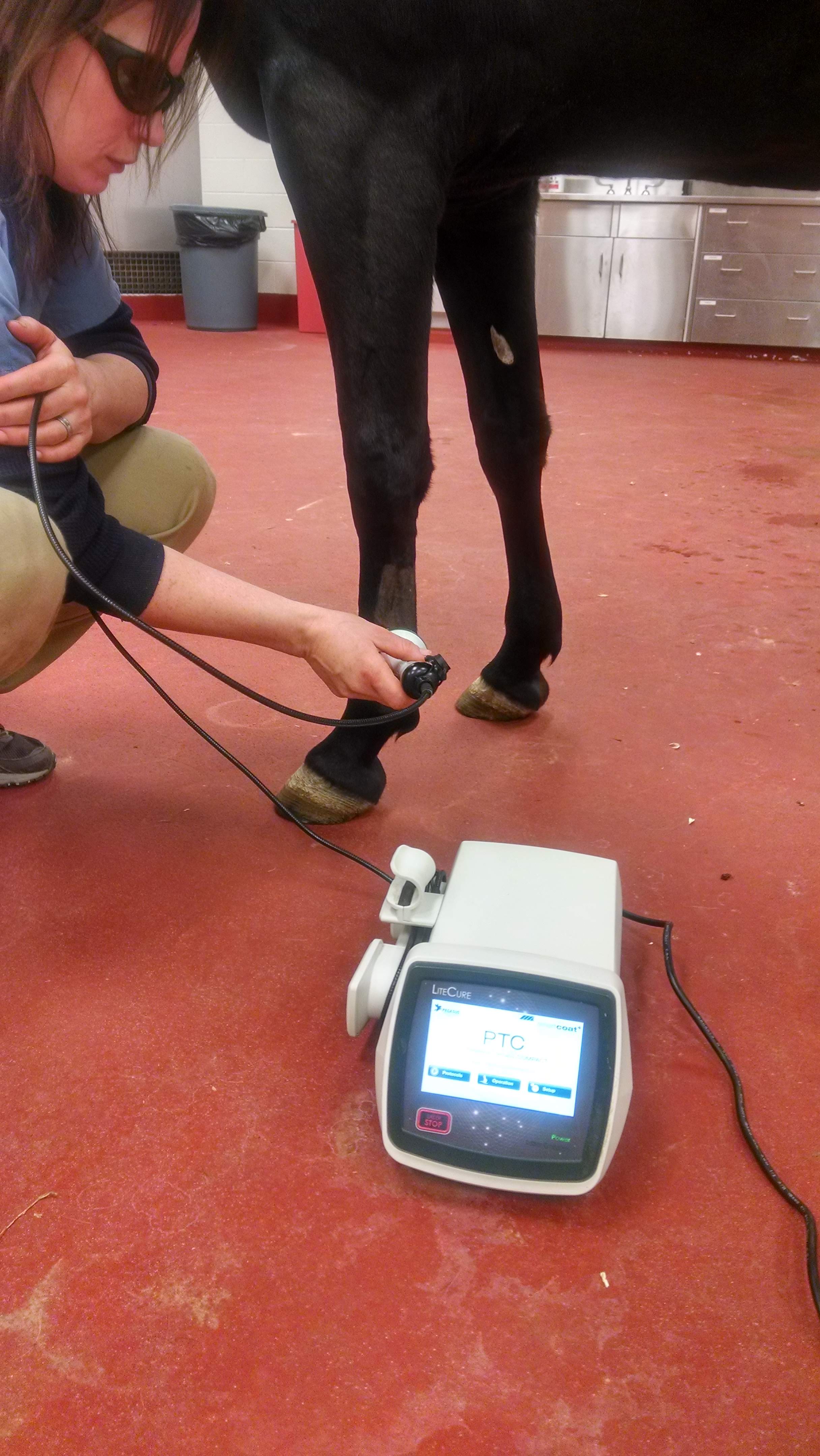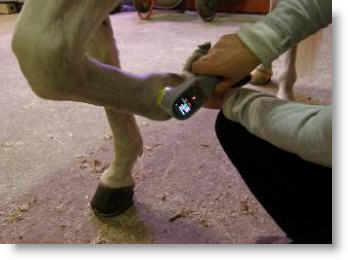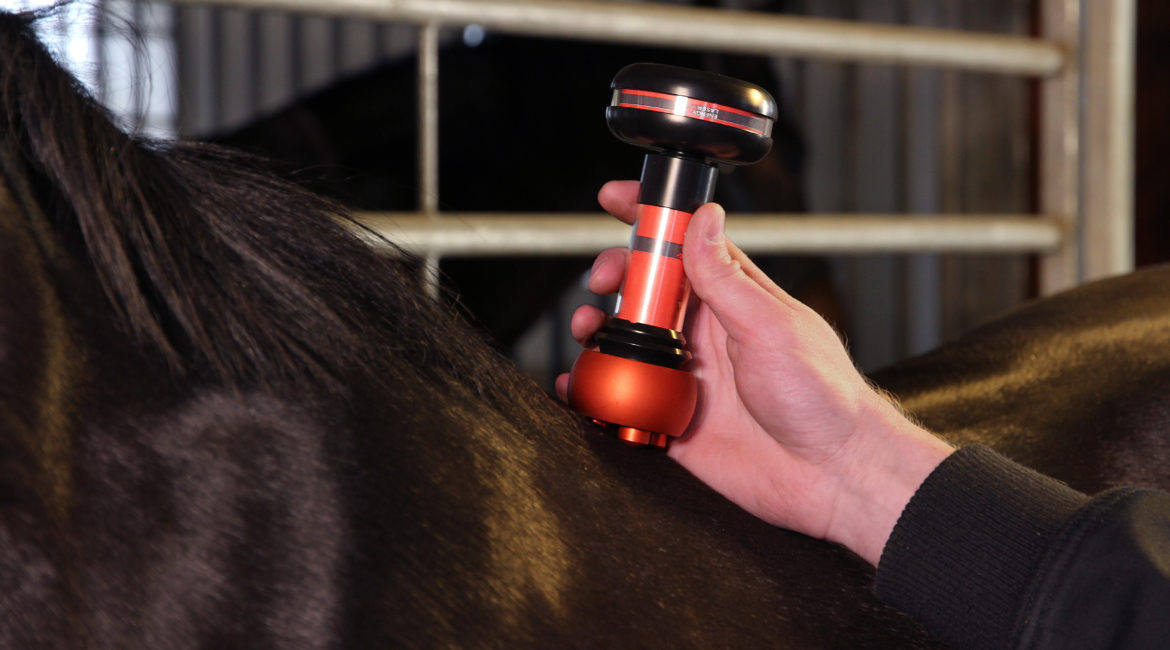Laser Treatment in Horse Therapy: A Modern Method to Improving Horse Wellness
Laser treatment has actually arised as a critical method in equine therapy, utilizing concentrated light power to cultivate mobile repair work and accelerate recuperation from a selection of ailments. By promoting mitochondrial task and enhancing ATP manufacturing, laser therapy not only enhances flow but additionally gives considerable discomfort relief.
Comprehending Laser Therapy
Laser therapy, a non-invasive treatment modality, has actually obtained substantial grip in equine medication due to its effectiveness in promoting recovery and discomfort relief. Improved ATP levels accelerate tissue repair procedures and reduce inflammation, making laser treatment specifically reliable for treating bone and joint injuries, injuries, and various other inflammatory conditions in horses.
There are numerous kinds of lasers used in equine treatment, each with particular wavelengths and power outputs tailored to various therapeutic demands. Low-level laser therapy (LLLT), additionally recognized as cool laser treatment, utilizes reduced power degrees to boost cell feature without causing thermal damage. High-intensity laser therapy (HILT), on the other hand, makes use of higher power levels to accomplish deeper tissue infiltration and more substantial therapeutic results.
Veterinarians use numerous laser devices and techniques relying on the problem being treated and the desired depth of tissue penetration. Appropriate training and know-how are crucial for making sure the secure and effective application of laser therapy, consequently optimizing its restorative possibility while reducing dangers.
Advantages for Horse Wellness
With a solid understanding of how laser therapy functions, it is important to discover its various benefits for equine wellness. By promoting mobile feature, laser therapy advertises faster wound recovery and aids in the regrowth of broken tissues.
Moreover, laser treatment has actually been shown to improve circulation, consequently enhancing blood flow to impacted locations. Enhanced blood circulation guarantees that vital nutrients and oxygen are supplied extra successfully, promoting the healing process. In addition, laser therapy's anti-inflammatory effects assist in reducing swelling and pain, which is critical for the total health of the steed.
Pain management is one more substantial advantage. By releasing endorphins and blocking pain signals, laser treatment gives effective, non-invasive remedy for both severe and persistent pain. This can contribute to enhanced movement and lifestyle for the animal.
Lastly, laser therapy is a non-invasive treatment choice, lessening the threat of difficulties linked with even more intrusive treatments. Its versatility and efficiency make it an invaluable tool in contemporary horse veterinary medication.
Typical Problems Treated

One more widespread condition treated with laser treatment is joint inflammation. Horses dealing with both intense and chronic joint inflammation take advantage of the anti-inflammatory impacts of laser treatment, which aids to reduce pain and boost joint feature. In addition, laser treatment is employed in the administration of injuries. Whether managing medical lacerations or stressful injuries, the method promotes much faster tissue repair and lowers the danger of infection.
Equine respiratory problems, such as persistent air passage obstruction (RAO), also respond favorably to laser treatment. The anti-inflammatory residential properties of the therapy help in lowering respiratory tract swelling, thus enhancing respiratory feature. Additionally, laser therapy is advantageous in treating hoof issues, consisting of laminitis and abscesses. By enhancing flow and decreasing pain, it sustains quicker healing. here
Procedure and Safety
Implementing laser therapy in equine treatment involves a meticulous procedure to ensure both efficiency and safety and security. Equine Therapy. The procedure starts with a comprehensive vet analysis to identify the suitability of laser treatment for the equine's certain problem. When regarded appropriate, the therapy area is prepared by cleaning and, if necessary, clipping the hair to improve laser penetration
The expert should pick the correct sort of laser, normally a low-level laser (LLLT) or a high-power laser (HPL), depending on the problem being dealt with. The laser gadget is then adjusted to the appropriate wavelength, power, and duration setups. During the application, the expert relocates the laser over the targeted location in an organized fashion, making certain consistent and even direct exposure.
Safety procedures are purely adhered to, including using protective glasses for both the specialist and the equine. In addition, it is critical to keep an eye on the horse for any kind of indicators of discomfort or negative reactions throughout the treatment. Post-treatment, the horse is commonly offered a period of rest to enable the healing impacts to show up.

Future of Horse Laser Therapy
As innovations in vet medicine proceed to unravel, the future of equine laser therapy holds substantial pledge. Emerging innovations and much deeper scientific understandings are important source set to refine and increase the applications of laser therapy for steeds.
Furthermore, recurring research right into the molecular and mobile devices of laser therapy will likely yield enhanced procedures customized to certain problems, improving performance and decreasing therapy times. Customized therapy strategies based on hereditary and biochemical pens might become a truth, ensuring that each steed obtains the most appropriate and effective treatment.
Furthermore, governing advancements and standardization of methods will certainly improve the reputation and integrity of laser therapy in equine practice. Equine Therapy. As these advancements remain to emerge, equine laser treatment is positioned to come to be a crucial element of veterinary treatment, offering boosted recovery and boosted lifestyle for horses globally
Final Thought

Comments on “The Power of Equine Therapy for Anxiousness, PTSD, and Emotional Recovery”